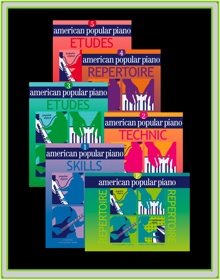I met Roxana Anklesaria-Doctor, the founder of Musiquest, at MTNA in Milwaukee in March 2011 and I expressed an interest in coming to India if an opportunity ever presented itself. She took my remark seriously enough to invite me, along with a starry cast of North American adjudicators, to take part in Musiquest 2011, a pan-Indian event that has happened bi-annually since 2007.
Pune is the second largest city, after Mumbai, in the state of Maharashtra. It’s known for various cultural activities, including classical music, spirituality, theatre, sports, and literature. These activities and many job opportunities attract migrants and students from all over India and abroad, which makes for a city of many communities and cultures.
This year’s Musiquest drew the biggest numbers yet - 164 student participants and 26 teachers from all over India. The students, ranging in age from 5 years old to adult, performed more than 650 pieces.
The participants in Musiquest were divided into Preliminary, Junior, Intermediate and Advanced divisions. Additionally, this year’s festival featured two new divisions - Popular Music & Jazz (adjudicated by me) and Piano Ensemble. Attractive prizes were offered, including a piano, a music scholarship to the USA, music books and cash prizes.
The Festival was presented in a workshop format, with participants receiving instruction at the piano as well as written adjudications and participation certificates from the international panel of adjudicators. The emphasis was always on motivation and positive criticism.
I was honoured to be part of the international adjudication panel, pictured below - renowned teachers/pedagogues Gail Lew (USA), Scott McBride Smith (USA), Roxanna Anklesaria-Doctor (India), Peter Mack (Ireland/USA), Murray Nichol (Canada) and Mary Tickner (Canada) Additionally, Peter Mack, Mary Tickner, Murray Nichol and I gave private lessons during the festival. Each of the adjudicators also presented one or more workshops for participants and for the professional development of the participating teachers.
Prize winners were announced on the evening of November 26, 2011, following a dazzling recital by Dr. Peter Mack at the magnificent Ista Hotel in Pune.
The Honors Recital was held on November 27, 2011. This event featured the awards ceremony and all prize winners (and me!) performed to a very appreciative audience.
I was most impressed by the thorough preparation of the students – pretty much no grinding to a halt or memory lapses, good sounds being produced most of the time and, in my classes, a steady beat being maintained. I talked to the students about technical matters that would make the pieces feel better to play and that would make audiences feel more “drawn in”. Things like avoiding harsh sounds, playing with only finger weight when required, using arm weight to create orchestra-like effects - these and many other matters proved to be immediately helpful to the performers and immediately discernible sound-wise to the listeners. Here I am working with one of the young students:
Students in India, like most parts of the world, are familiar with pop and even jazz styles, so they are often starting from a position of strength – they know what the piece should sound like right away. There was a relaxation and enjoyment about their playing of popular styles that made the adjudication a delight. And there were some outstanding performances – the winner of the overall advanced prize, 11 year old Aditya Deshpande, played a fiendishly difficult arrangement of Tico Tico na fuba by Marc-Andre Hamelin and the co-winner of the Adbvanced Popular Music division, Nadine Crasto, played an equally difficult piece by Percy Garinger, Cakewalk Smasher, with consummate ease.
I was also pleased to spend time with students who wanted to explore improvisation – in particular Marcus Daniel from Bangelore and Ron Cha from Assam. Here they are:
I also gave private lessons to 2 budding composers. Noshir Engineer from Bombay had written a fascinating programmatic piece called Encounter and Indusekhar Menon had penned a lovely romantic ballad called Guiding Light. For the latter piece, I improvised an altered version for him which he was able to take away on videotape.
My workshops were Unlocking Popular Styles and Getting Vertical - for both of these, I had lots of participation from the audience and it seemed to entertain and inform in equal measure.
I hope to get back to India to do some Christopher Norton Piano Festivals. It was a great week, impeccably organized. And the food was fantastic!
Here are some links for press coverage of the event:
http://www.punemirror.in/article/63/2011112320111123083051705b29b81b1/Playing-the-notes.html
http://www.sakaaltimes.com/sakaaltimesbeta/20111124/5373981267569154557.htm
http://www.deccanherald.com/content/193454/pune-host-piano-festival-nov.html
http://nripress.com/index.php?option=com_content&view=article&id=135571
http://nripress.com/index.php?option=com_content&view=article&id=136001



















